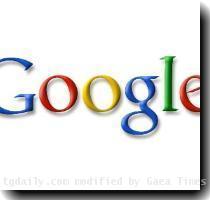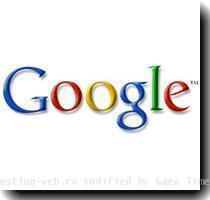Google’s plan to add millions of books to digital library riding on new settlement
By Michael Liedtke, APFriday, November 13, 2009
Google digital book ambitions hinge on settlement
SAN FRANCISCO — Google Inc.’s plans to add millions of copyright-protected books to its digital library are riding on a new legal settlement addressing the objections of government regulators who don’t want Google to gain too much power over a new market.
The revisions, expected to be filed with a New York federal court late Friday, represent Google’s latest attempt to resolve a 4-year-old lawsuit with groups representing the interests of U.S. authors and publishers.
Google negotiated a $125 million truce nearly 13 months ago only to have it fall apart as a chorus of critics protested to the federal judge who must approve the proposed settlement.
Among other complaints, the opposition said the plan would put Google in charge of a literary cartel that could illegally rig the prices of electronic books — a format that is expected to become increasingly popular.
The U.S. Justice Department chimed in with concerns two months ago, saying the settlement could diminish competition, drive up prices and trample over copyright laws. French and German officials have protested the settlement, arguing that it’s so broad that it could infringe on copyrights in their countries.
Google plans to sell subscriptions to its digital library, as well as individual copies of books, with most of the proceeds going to the participating authors and publishers.
The Internet search leader already has gone into some of the nation’s largest libraries to scan about 6 million out-of-print books. So far, though, it has only been able to show snippets of those digital copies. A court-approved settlement would clear the way for Google to sell all those out-of-print books and scan even more into its index.
The Justice Department urged Google, authors and publishers to come up with an alternative plan because it believes the public will benefit by having more books — including millions no longer in print — available to anyone with an Internet connection.
Coming up with changes acceptable to all the principals hasn’t been easy. The revised settlement was due Monday, but U.S. District Judge Denny Chin extended the deadline until Friday because Google said it needed more time after meeting Justice Department officials last week.
Even if the new agreement placates the Justice Department, Google could still face objections from powerful forces.
Microsoft Corp., Yahoo Inc. and Amazon.com Inc. are part of a group called the Open Book Alliance that spearheaded the charge against the original settlement. The group vowed to keep fighting if dramatic changes aren’t made. Google, though, has indicated only minor tweaks will be need to satisfy the Justice Department.
Critics are worried Google will get a monopoly on so-called “orphan works” — out-of-print books that are still protected by copyright but whose writers’ whereabouts are unknown.
If the writers or their heirs don’t stake a claim to their works, the original settlement calls for any money made from the sales of their books to go into a pool that eventually would be shared among the authors and publishers who had stepped forward to work with Google.
In its September filing, the Justice Department suggested any revisions should ensure that authors of orphan books aren’t automatically covered by the settlement. Instead, the agency said, authors should be required to notify Google that they like the settlement — a process known as opting in.
The Justice Department also wanted Google, the authors and publishers to make it easier for potential competitors to obtain licensing agreements similar to the ones Google would have.
Tags: North America, San Francisco, United States

